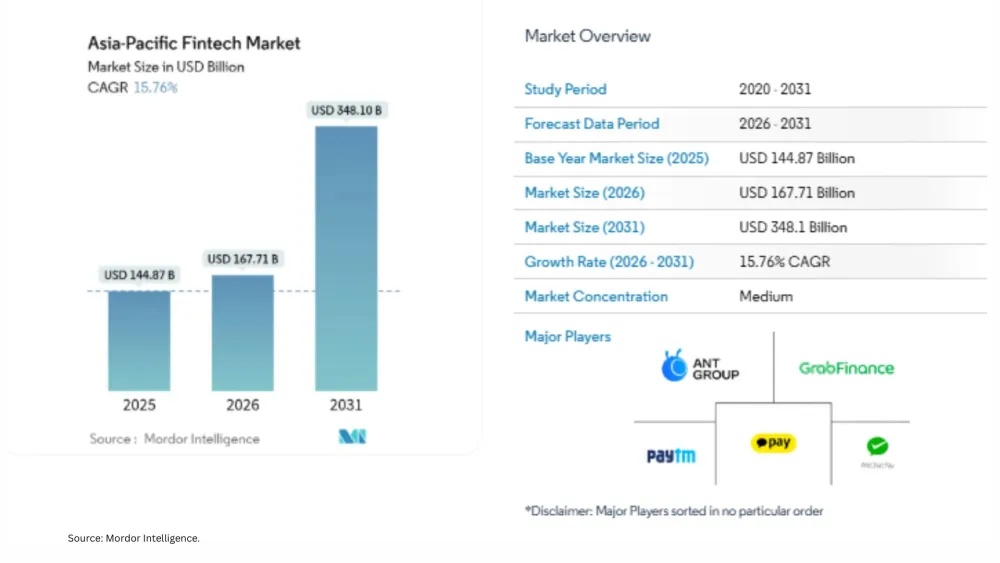
How Spenmo helps businesses secure direct loans
The platform also allows merchants to effectively manage expenses.
Tracking operational expenses such as invoices, receipts, and employee salaries can already be a daunting task for micro, small and medium enterprises (MSMEs). What’s more, they also have to secure loans from banks and alternative lending platforms, something that is already a chore in itself especially for those just starting out and looking to increase their credit score.
What started as a way to help small businesses with their cash flow landed them in a position to assist them with their financing needs as well, Spenmo co-founder Mohandass Kalaichelvan said. Launched in 2019, the Singapore-based startup provides MSMEs with corporate cards to easily track expenses, obtain financial reports and digitise spending, in addition to granting them direct connections to lenders in Southeast Asia.
Spenmo has previously received seven-figure funding from Rocket Internet. In 2020, the company was chosen by American seed money startup accelerator Y Combinator for its Summer 2020 Batch, securing $150,000 in funding. It has also been backed by angel investors from Google, Netflix, Go-Jek, StashAway, and Alibaba.
“Being able to centralise the spending data of small businesses meant that we were able to provide lenders with in-depth information on how businesses were spending their money, and act as an additional metric for credit assessment, therefore greatly improving businesses’ chances of getting a loan,” he explained.
In an exclusive interview with Asian Banking & Finance, Kalaichelvan discusses the pain points of the lending sector, the signs that should tell businesses to seek alternative lending platforms, how businesses can make themselves attractive to lenders, and how traditional and alternative lenders can partner to ensure that they uphold the best interest of clients.
In your opinion, what pitfalls in the lending sector did the pandemic-caused economic fallout expose? How do you plan on solving, or at least mitigating, those?
Many MSMEs have continued to blur the lines between company and personal spending. Without the right tools and education, many business owners are utilizing their personal accounts to conduct business transactions, and vice versa. What this pandemic has done is exposed the flaws involved in this method of cash flow management. With cash flow streams fragmented and muddled up, banks and lenders have a hard time determining the creditworthiness of clients. Not to mention that such practices often do not leave a positive impression of the business professionalism in the first place. As a result, otherwise credit-worthy customers may end up being turned away from receiving loans.
With Spenmo, micro, small and medium-sized businesses are provided with an ever-growing suite of services that allow them to centralise the company’s spending, while saving costs for MSMBs as well. This allows for a clearer, more in-depth assessment of the company’s creditworthiness. The bigger vision for Spenmo is to use the data from companies’ spending to inform creditworthiness and connect them to the best lenders in the region.
Despite increased innovation and technological adaptation within the banking sector, banks still take a number of weeks to revert back on applications. This has been further exposed by the pandemic, with the sudden influx of applications doubling or even tripling the wait-time involved in the application process.
Spenmo is trying to increase this by increasing business’ awareness of alternative financing options which have much quicker turnaround times than banks. Additionally, with our centralized spending platform, companies are able to easily reflect their spending habits, which in turn allows financial institutions to expedite the credit appraisal process without having to follow a papertrail which can be extremely time-consuming.
When are bank loans non-beneficial for businesses? Are there any specific red flags that should let them know that they have to seek elsewhere?
What some companies don’t know is that each application for any sort of credit bank or financial institute (CC, personal bank loan, corporate bank loan) results in a hard pull of the applicant’s personal CBS report from the banks. These pulls show up on the individual’s CBS report subsequently as an “enquiry”. Although having made a few enquiries will not affect your credit, multiple pulls from several institutions may start to negatively affect the Individual’s credit rating.
As such, if the company has made a number of applications to banks for loans to no avail, it may be in their best interest to hold off on making more applications to banks and reassess their options. This is when an alternative lender may come into play wherein applications do not actually show up on their CBS reports due to the nature of these lenders.
Each bank has their own minimum requirement for a loan application. Although similar, there are some that have a lower or higher threshold for certain requirements like annual turnover. As such, these should be considered prior to any applications made to decide if the company’s viable for a bank loan in the first place.
How can businesses make themselves attractive to lenders, especially those who are just starting out and looking to increase their credit score?
The first and most controllable way to improve your business’s credit-worthiness is to ensure that shareholders themselves have a strong credit standing. For shareholders, the rationale behind this is that it would be hard for them to trust a business to make repayments if the owners themselves are not able to make commitments in ensuring that their finances are in order. Having no credit history itself is also not a positive sign. As such, a simple thing that business owners with no prior debt can do is to get a credit card and load some of their existing monthly expenses onto it, and obviously make payments on-time.
Firstly, ensure that all company expenses are well accounted for. The easy way to do this is with an expense policy. Companies will be able to pre-allocate funds by making accurate projections. Additionally, businesses owners should ensure that the company is able to make monthly expense payments. Spenmo can help solve these issues by providing full accountability and visibility. This will help avoid bank overdrafts due to unaccounted expenses as much as possible, which can hurt your company’s credit-worthiness.
On that note, there are two things a company should always consider when getting a loan: ability and willingness to pay back. A company’s ability to pay is equivalent to how much money is in its bank account and the future projections of the business. Its willingness to pay is defined by whether they will be able to pay back the loan on time. These are huge indicators to a lender if a business is a credit-worthy customer.
It was mentioned that traditional and alternative financing options are not necessarily working against each other. In that case, how can the two work together to ensure that clients’ interests are protected?
Currently, there is still a disconnect between the alternative lenders and banks. Clients who are rejected by banks are not made aware of the other options available to them, and sometimes drop off, having to either close down or turn to less viable alternatives.
One way to close this gap would be an aggregating platform which puts power into the hands of business owners by showing them where their business stands and what their options are.
Regarding your company expenses service, what improvements have you been rolling out in response to the growing need for remote work?
Teaming is a feature that we recently rolled out. It involves multi-layered management of the company’s funds therefore providing more autonomy to employees on their funds allocated, while still maintaining that same level of visibility on company spending to higher management.
As such, employees no longer have to request approval or seek funds directly from the company’s administrative team but are able to work within their teams to decide how best to allocate and utilize funds. This works well within the current social framework where companies are physically fragmented and more silo-ed.



















 Advertise
Advertise














